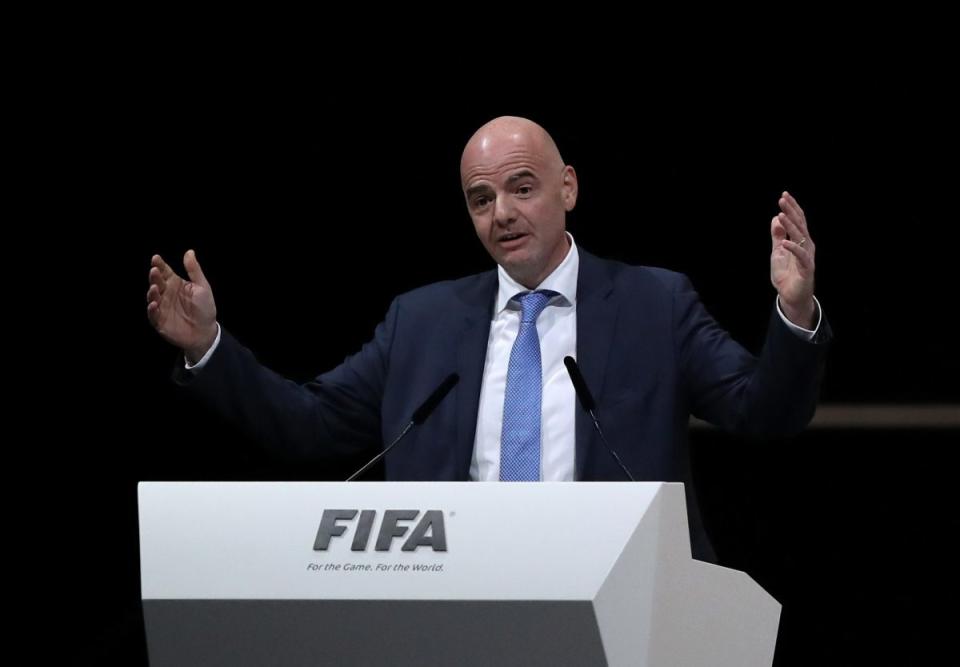FIFA finally released the leaked Garcia Report on World Cup bid corruption, which has lots of dirt but no smoking gun

FIFA swears that they were going to release the Garcia Report anyway, you guys.
It definitely had nothing to do with the fact that the internal report, compiled by former U.S. Attorney Michael Garcia on the alleged corruption of the bidding process for the 2018 and 2022 World Cups, had been leaked to German newspaper Bild and was about to be released.
Yeah, after just a few copies had sat in various safes for almost three years since Garcia delivered his 350-page investigation, the new powers that be at FIFA were totally going to release it anyway. Even though they’d had the chance to do so for every day of the entire year they’d been in power but chose to do so now, 24 hours after it had leaked.
So, on Tuesday, FIFA scooped Bild and put the entire report online. Finally.
And then FIFA, being FIFA, put an unlikely spin on the whole thing. “The new chairpersons of the independent Ethics Committee, Maria Claudia Rojas of the investigatory chamber and Vassilios Skouris of the adjudicatory chamber, have decided to publish the Report on the Inquiry into the 2018/2022 FIFA World Cup Bidding Process (the so-called “Garcia Report”),” it wrote above the links to the release.
“This had been called for on numerous occasions by FIFA President Gianni Infantino in the past and also supported by the FIFA Council since its meeting in Mexico City in May 2016,” FIFA continued. “Despite these regular requests, it is worth noting that the former chairpersons of the Ethics Committee, Cornel Borbély and Hans-Joachim Eckert, had always refused to publish it.”
There are several dubious claims here. First, that this was in the works anyway. Secondly, that Infantino, who replaced the disgraced Sepp Blatter at the top of the FIFA food chain last year but has proven no better, was in favor of it. And third, that the former ethics heads, who were ousted at the most recent FIFA Congress just last month, were responsible for withholding the report from the public.
It isn’t possible to corroborate any of those things independently. They are terribly convenient explanations that, in keeping with FIFA tradition, throw already-ousted members under the bus and make those remaining — and controlling the narrative — look as good as possible.
[ Follow FC Yahoo on social media: Twitter | Facebook ]
The report, as widely expected, didn’t contain any massively explosive revelations. Garcia had no subpoena power. Anything he was told was admitted to him voluntarily, which made his investigation every bit as toothless as the FIFA brain trust that ordered it probably intended for it to be.
There is no definitive proof that Russia or Qatar bought their rights to host the 2018 and 2022 World Cups, respectively. Garcia’s reporting does note tons of irregularities that allow you to connect the dots, perhaps laying out the anecdotal hints to a case for why the towering favorites of England and the United States missed out on those tournaments.
A lot of the contents had already been published elsewhere in recent years, as tidbits got out. But to see them brought together in one overarching document is to behold a system of stunning and shameless graft.
Here a few of the more interesting findings:
The laptops used for the Russian bid had been leased from a youth academy and then destroyed before Garcia could get to them.
The Russian government refused to release audits of the bid.
No Russian Gmail accounts used for the bid were made available for inspection, which was blamed on Google.
The United States bid covered the lodging of one FIFA Executive Committee member to attend a Clinton Foundation event in New York — President Bill Clinton was part of the bid effort — which was interpreted as playing by the rules, but perhaps straddling the line.
The U.S. also provided iPads to bid inspectors, which weren’t asked back.
When former Barcelona president Sandro Rosell was contracted to help the Qatar bid, via the Qatari federation, his contract required him to delete all information he had on the bid when he was finished.
Then-CONCACAF president Jack Warner asked the English bid to find a job for a man he considered his adoptive son, which it delivered when he got some type of employment with Aston Villa Football Club.
As expected, vote-trading does seem to have occurred — which was probably inevitable, with two World Cup hosts decided at once.
At present, it’s unclear what the fallout of the release will be. It’s likely that it will be modest, given that FIFA has had all of this information for years and chose not to do anything with it.
But at the very least, the process might run a little cleaner in the future. Now that the power brokers in the global governing body know that their dealings might become a matter of public record sometime in the future, it might act as a deterrent.
Maybe.
Leander Schaerlaeckens is a Yahoo Sports soccer columnist. Follow him on Twitter @LeanderAlphabet.
More soccer coverage from FC Yahoo:
• FIFA hasn’t really changed that much under Gianni Infantino
• Arena’s Gold Cup roster combines veterans, fringe players
• Russian national team has some work to do before World Cup



